If a cheetah runs for 25 m in a chase for 50 s, what was its average speed?
Just tell what equation that you will use to find out.
t = d/t s = d/t d = s x t
s = d/t
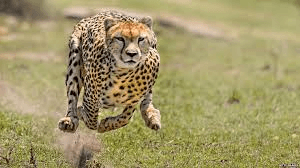
An ant walked 6 meters in 2 minutes. What was it's average speed?
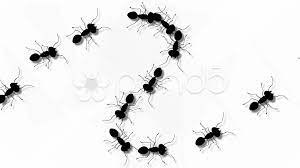
3 m/min
6 m / 2 min = 3 m/min
Name two units that measure distance.
Any two: inch, foot, yard, mile
centimeter, meter, kilometer
[There are others.]
In a distance -- time graph, what is graphed on the x axis; what is graphed on the y axis?
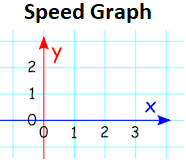
time on the x axis
distance in the y axis
Which color line represents positive acceleration?
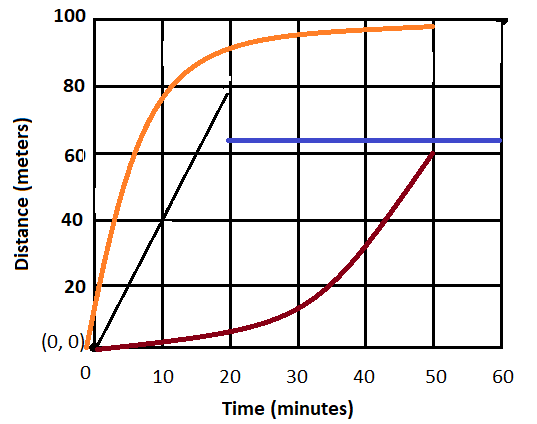
orange [Every second it gets faster than the second before.]
A cheetah ran 1452 meters in 44 seconds. What was its average speed?
33 m/s
s = d / t
33 m/s = 1452 m 44 s
If an ant runs 48 cm in 16 seconds, what is its average speed?
3 cm/sec
d/t = s
48 cm/16 sec = 3cm/sec
These three terms measure __.
6 mi/hr 3 m/s 1 cm/day
time
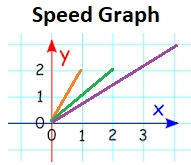
What color line is fastest?
[extra click] Which line goes the farthest distance?
Orange is fastest. Purple goes the farthest distance.
Which color line does NOT represent acceleration?
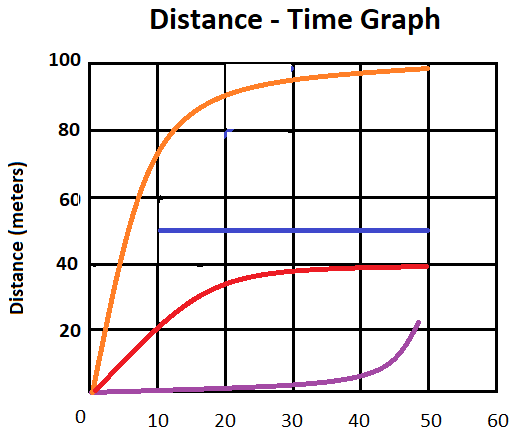
blue
A migrating zebra ran for an average of 9 km/hr for 9 hours. How far did it run? [Use the correct unit of measurement.]
81 km
d = s x t
81km = 9km/hr x 9 hrs
An athlete ran a 10-k race at an average of 7km/hr. She had to stop to tie her shoe. Then she continued at 7km/hr. Why was her average for the speed less than 7km/hr?
When she stopped, her average dropped.
Identify what each term measures.
.25 km .8 minute 84 cm 84 cm/sec
.25 km .8 minute 84 cm 84 cm/sec distance time distance speed
Match each description with the type of line graphed.
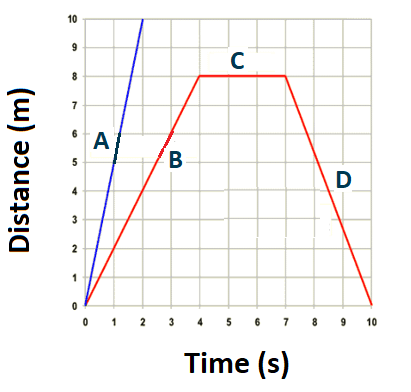
stationary (no movement) steady speed, returning home steady speed, slower speed steady, faster speed
.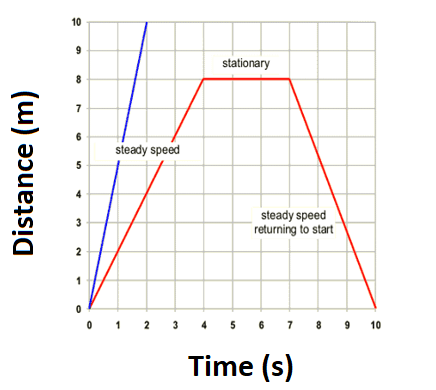
Explain the type of motion represented by each colored line.
positive acceleration faster constant movement slower constant movement negative acceleration
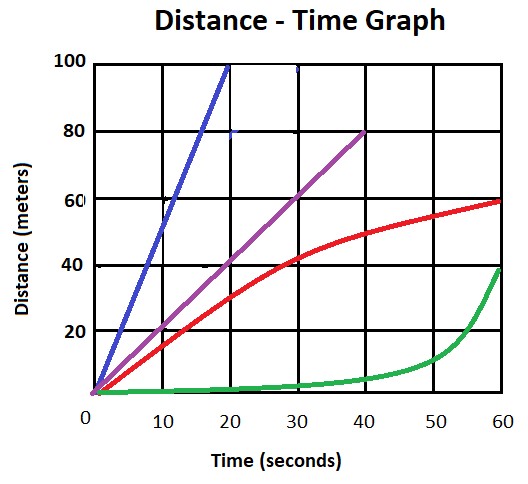
green - positive acceleration
red - negative acceleration
blue - faster constant movement
purple - slower constant movement
!!DAILY DOUBLE!! [Each group answers on paper. Each correct answer gets two clicks. The same team continues their turn.]
Horace meandered along at .4 m/s until he had walked a 240 meter loop around his neighborhood. How long did it take him?
[extra click if you can tell how many minutes that it took]
600 seconds which is 10 minutes
t = d / s
600 s = 240 m / .4 m/s
Extra click: 10 minutes
600 seconds / 60 seconds (per minute) = 10 min.
Snoop drove his Deville from Philadelphia to New York, a distance of 97.6 miles 101 minutes.
What was his average speed?

.966 or .97 mi/min
[That's a little slower than 1 mi/min, which is 60 mi/hr.]
!DAILY DOUBLE! Everybody plays. Correct answers get a double click. Then it goes back to the same team for another turn.
On Aug. 16, 2009, Jamaican Usain Bolt clocked 9.58 seconds in the final of the 100 meters at the IAAF World Championships in Berlin.Aug 16, 2019.
What was his average speed?
10.44 m/s
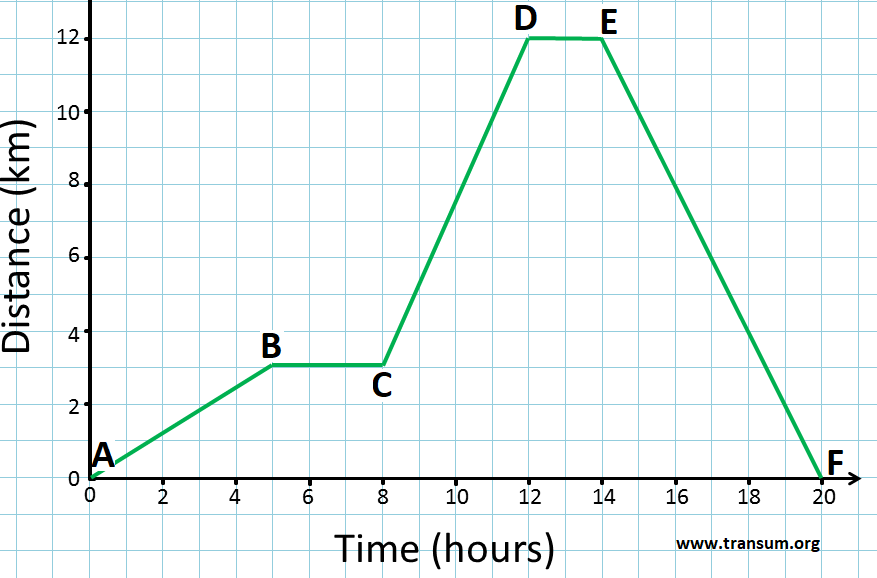
What line segment shows a slow, steady speed? [Double click] Which two line segments are stationary?
slow, steady AB stationary BC and DE

What occurs when the velocity of a moving object decreases?
negative acceleration
Simon backstrokes at an average speed of 3 m/s. How many seconds will it take her to complete the race of 210 meters length?
70 seconds
t = d / s
70 = 210 m 3 m/sec
In a swimming race, Jerold swam the first 100m in 82 seconds and the second 100m in 78 seconds.
Describe how you would calculate average speed.
Divide the total distance by the total number of seconds.
Explains the speed that each color of line shows.
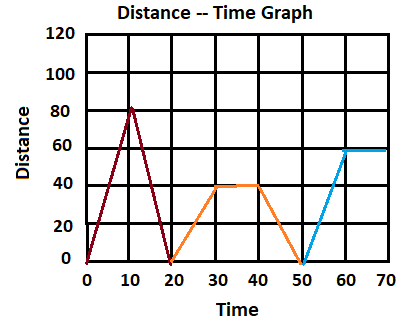
Purple moves at a constant, speed, then returns back to start.
Orange moves at a constant speed, stops, then goes back to start.
Blue moves at a constant speed, then stops.
[Kind of hard; thats why its 500!]
Describe how Carlo's plane flew throughout the race.
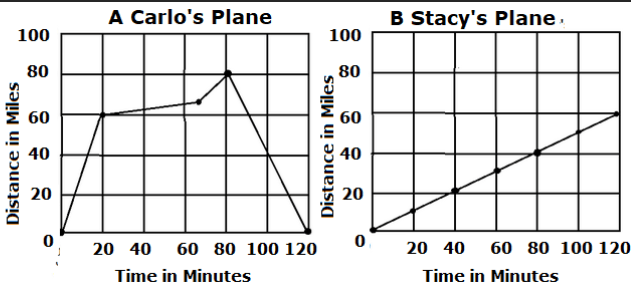
Something like this:
"Carlo's plane began rapidly, then slowed almost to stopping, it picked up speed, then returned to it's point of origin at a slightly slower speed."What movement occurred between 10-15 seconds? What movement occurred between 15-30 seconds? What movement occurred between 30-40 seconds? What movement occurred between 40-60 seconds?
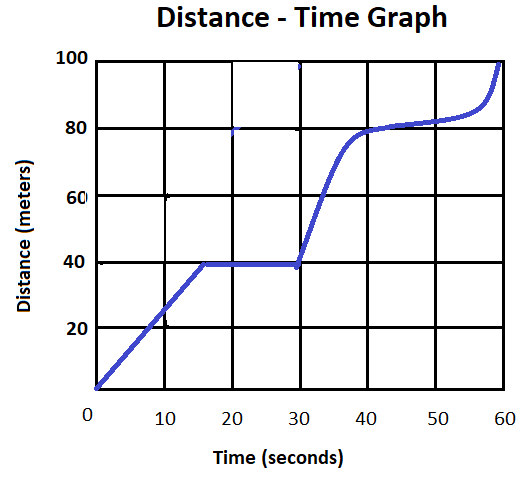
between 10-15 seconds - constant
between 15-30 seconds - stationary
between 30-40 seconds - negative acceleration
between 40-60 seconds - positive acceleration